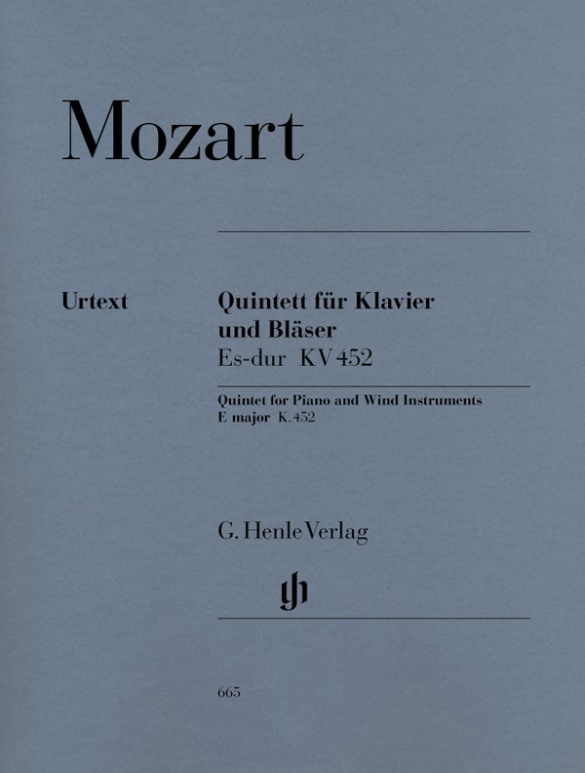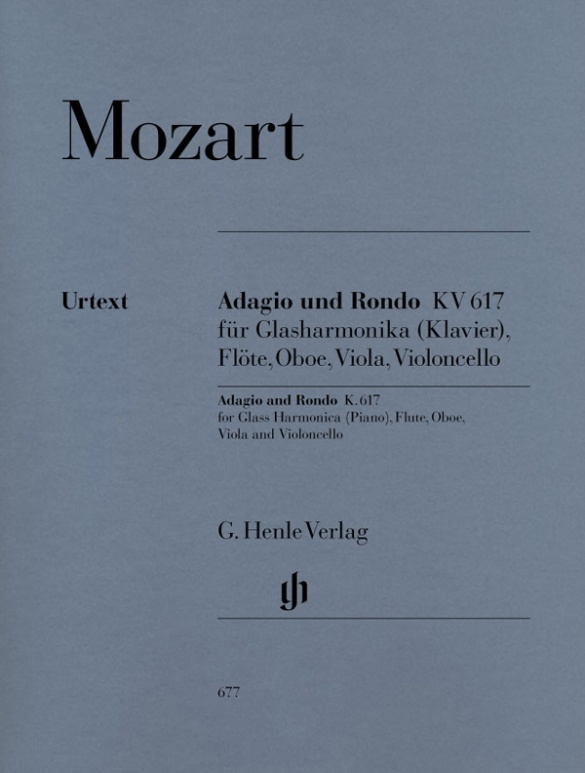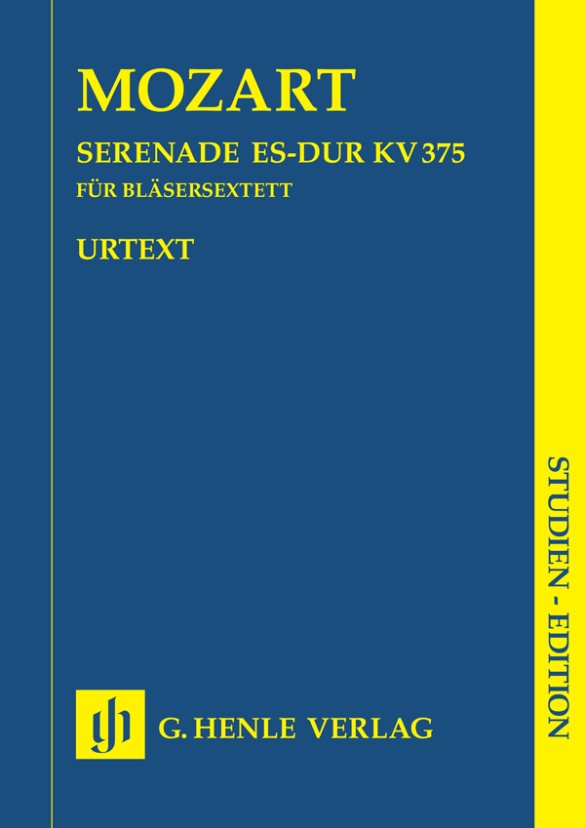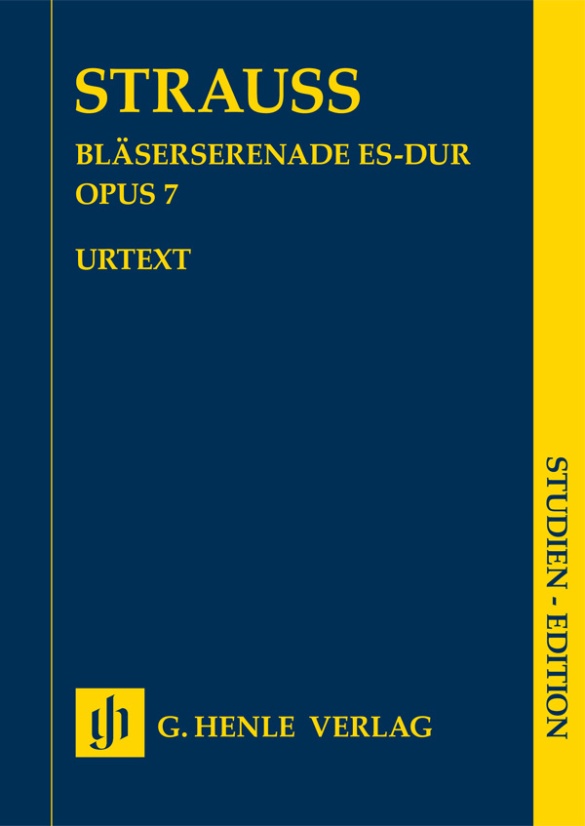

Richard Strauss
Serenade for Wind Instruments E flat major op. 7
When he was a mere 18 years old, Richard Strauss composed the highly Romantic, one-movement Serenade for Wind Instruments, op. 7. Extremely popular among wind players to this day, this work recalls in instrumentation and structure Mozart’s “Gran Partita”, which certainly served as a model for Strauss. The serenade was not premiered in its Bavarian homeland as might have been expected, but rather in Dresden, in 1882, under the direction of the then much-esteemed conductor Franz Wüllner, who had also given the inaugural performances of Richard Wagner’s Rheingold and Die Walküre and later premiered Strauss’ tone poems Till Eulenspiegel and Don Quixote. So it was a great honour for the young Bavarian! Editor Norbert Gertsch presents this little masterwork here for the first time in Urtext quality for which not just the first edition but also the autograph manuscript was scrutinised fastidiously.
Content/Details
About the Composer
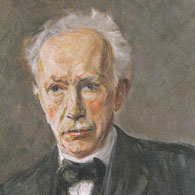
Richard Strauss
One of the most important opera composers of the twentieth century. His oeuvre comprises fifteen operas, nine symphonic poems, instrumental concerti, and a large number of songs. His stage works are marked by their great variety of genre and subject matter.
| 1864 | Born in Munich on June 11, the son of Franz Joseph Strauss, principal horn player in the court orchestra. Receives instruction in piano, violin, and composition. |
| 1885–86 | Conductor at the Meiningen Court Orchestra, initially under the tutelage of Hans von Bülow. |
| 1886 | Music director at the Munich Court Theatre. |
| 1887–1903 | He increasingly devotes himself to the symphonic poem, including “Tod und Verklärung” (“Death and Transfiguration”) in C minor, Op. 24; “Till Eulenspiegels lustige Streiche” (“Till Eulenspiegel’s Merry Pranks”) in F major, Op. 28; “Also sprach Zarathustra,” Op. 30; “Symphonia Domestica” in F major for large orchestra, Op. 53. |
| 1889–94 | Music director in Weimar. First Kapellmeister in Munich in 1894, in Berlin at the Royal Court Opera from 1898–1910. |
| 1905 | Breakthrough with the premiere of “Salome,” Op. 54. |
| 1906 | Beginning of his collaboration with Hugo von Hofmannsthal on the harmonically progressive opera “Elektra,” Op. 58, premiered in Dresden in 1909. |
| 1911 | Sensational premiere in Dresden of “Der Rosenkavalier,” Op. 59, which refers back to operatic tradition and makes him the leading German opera composer. He decides to dedicate himself primarily to operas: “Ariadne auf Naxos,” Op. 60 (1912); “Intermezzo” Op. 72 (1924); “Die ägyptische Helena,” Op. 75 (1928); “Arabella,” Op. 79 (1933); “Die schweigsame Frau,” Op. 80 (1935); “Friedenstag,” Op. 81, and “Daphne,” Op. 82 (1938); “Die Liebe der Danae,” Op. 83 (1944). |
| 1919 | Director of the Vienna State Opera. Premiere there of “Die Frau ohne Schatten,” Op. 65. |
| 1931 | Collaboration with Stefan Zweig. |
| from 1944 | Composition of his last works: Metamorphosen, for 23 solo strings, Oboe Concerto in D major, Four Last Songs. |
| 1949 | Death in Garmisch-Partenkirchen on September 8. |
About the Authors

Norbert Gertsch (Editor)
Dr. Norbert Gertsch, born in 1967 in Rheinkamp/Moers, studied piano solo at the Mozarteum in Salzburg and read musicology and philosophy at the Paris Lodron University in Salzburg and the Ruperto Carola University Heidelberg on a scholarship from the “Studienstiftung des Deutschen Volkes”. In 1996 he wrote his doctoral thesis on Ludwig van Beethoven’s Missa solemnis (as part of the New Complete Edition) under Ludwig Finscher.
In the following year, he began to work at G. Henle Publishers, initially as an editor for electronic publishing. After working on a two-year project (1999–2000) sponsored by the German Research Foundation (DFG) preparing a new Beethoven Catalogue of Works, he became a scholarly editor at G. Henle Publishers. In 2003 he became Editor-in-Chief, in 2009 Deputy Managing Director and Head of Publishing. As of 1 January 2024, the Executive Board of the Günter Henle Foundation has appointed Dr. Norbert Gertsch, as the new managing director, succeeding Dr. Wolf-Dieter Seiffert.
Gertsch has published many Urtext editions for G. Henle Publishers, including volumes for a new edition of Beethoven’s Piano Sonatas together with Murray Perahia.
Product Safety Informations (GPSR)

G. Henle Verlag
Here you can find the information about the manufacturer of the product.G. Henle Verlag e.K.
Forstenrieder Allee 122
81476 München
Germany
info@henle.de
www.henle.com
recommendations
autogenerated_cross_selling
Further editions of this title
Further editions of this title


